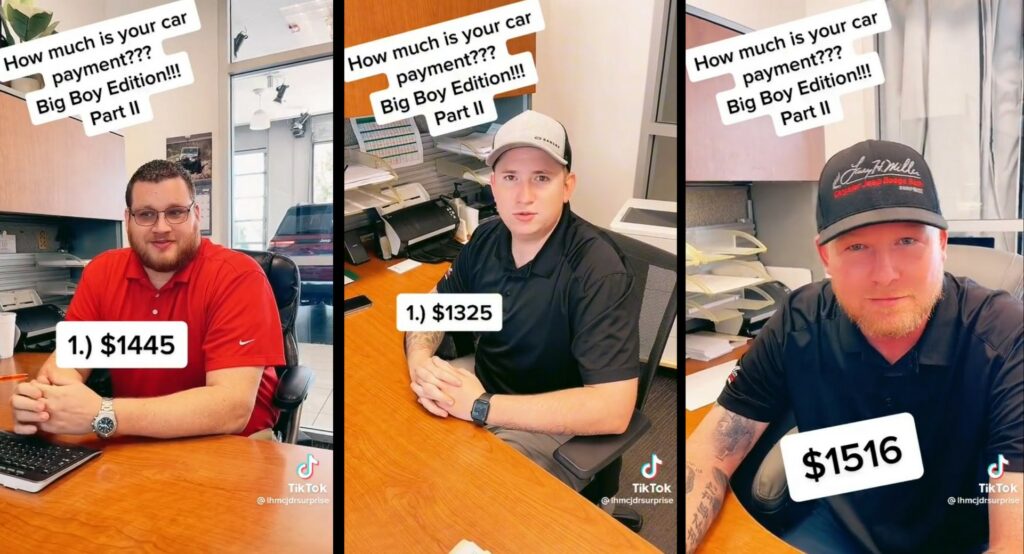Monthly car payments are a fact of life for millions of us. Most people can’t afford to buy a brand new car for cash, and even those that can don’t like the idea of having their money tied up in a daily driver when it could be making more money by being used elsewhere.
But there’s something a little distasteful about a recent round of videos that have surfaced on TikTok in which dealership employees showcase the often huge sums – as high as $2,606 for two vehicles in the same household – they’re paying each month.
And it’s not merely because I’m British and we’re all uptight and don’t like to talk about money that it niggles. As The Drive’s Stef Schrader points out, bragging about big monthly car payments doesn’t look great when the world is teetering on the brink of recession and a combination of interest rate rises, car production hold-ups and dealers charging way over MSRP means Americans are paying vastly more for their cars than they were even last year, and potentially more than they can afford.
Related: Internet Posters Beat Chevrolet Dealers In Battle Of Astronomical Corvette Z06 Markups
Does this dealership realize this makes them all look really bad???? pic.twitter.com/RGhOoMznXt
— Jessica Ray (@jessicaray0) August 27, 2022
Edmunds reported this summer that 12.7 percent, or more than one in eight consumers, financing a new car in June 2022 signed up for monthly payments that exceeded $1,000, that proportion rising from 7.3 percent in June 2021. And multiple dealer employees shown in the videos also claim to be paying over $1,000 per month.
That kind of monthly commitment might be no problem when you’re pulling in $200k a year, but it’s a lot of dough for regular folk, including the kind who work at auto dealerships. And it’s quite possibly more than many people pay on a mortgage. Yet the dealers are propagating a myth that it’s totally normal for people on ordinary incomes to be this much in hock over a new car.
@imwithnewton That last one hurt me😅 #carpayment #dealershiptiktok #dealership #salesman #dailydriver #financing #fypage #viral
The video trend has received numerous negative comments but also some suggestions from those in the car industry as to why the employees were paying so much for their cars, including the likelihood that staff were flipping cars every few months to supplement their incomes, or had been put under pressure to sell to themselves to boost sales figures in quiet periods.








